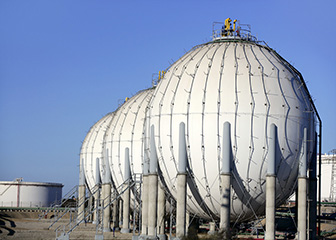
Petroleum engineers must have a bachelor’s degree in engineering, preferably in petroleum engineering.
Petroleum engineers must have a bachelor’s degree in engineering, preferably in petroleum engineering. Employers also value work experience, so cooperative engineering programs, in which students earn academic credit for structured job experience, are valuable as well.
Education
Students interested in studying petroleum engineering will benefit from taking high school courses in mathematics, such as algebra, trigonometry, and calculus; and science, such as biology, chemistry, and physics.
Entry-level petroleum engineering jobs require a bachelor's degree. Bachelor's degree programs typically take 4 years and include classroom, laboratory, and field studies in areas such as engineering principles, geology, and thermodynamics. Most colleges and universities offer cooperative programs in which students gain practical experience while completing their education.
Some colleges and universities offer a 5-year program that leads to both a bachelor’s degree and a master's degree. A graduate degree allows an engineer to work as an instructor at some universities or in research and development. Some 5-year or even 6-year cooperative plans combine coursework with practical work, permitting students to gain experience and to finance part of their education.
ABET (formerly the Accreditation Board for Engineering and Technology) accredits programs in petroleum engineering.
Important Qualities
Analytical skills. Petroleum engineers must be able to assess complex plans for drilling and anticipate possible flaws or complications before the company commits money and people to carry out the plans.
Creativity. Petroleum engineers must come up with new ways to extract oil and gas because each new drill site presents challenges. They must know how to ask the necessary questions to find possible deposits of oil and gas.
Math skills. Petroleum engineers use the principals of calculus and other advanced topics in mathematics for analysis, design, and troubleshooting in their work.
Problem-solving skills. Identifying problems in drilling plans is critical for petroleum engineers because drilling operations can be costly. They must be careful not to overlook any possibilities that something unwanted may happen.
Teamwork. Petroleum engineers must be able to work with people from a wide variety of backgrounds, including other oil and gas workers who will carry out the engineers’ drilling plans.
Licenses
All 50 states and the District of Columbia require petroleum engineers to have a license if they offer their services directly to the public. Licensed engineers are called professional engineers (PEs). Licensure generally has the following requirements:
- A degree from an ABET-accredited engineering program
- A passing score on the Fundamentals of Engineering (FE) exam
- Relevant work experience, a minimum of 4 years
- A passing score on the Professional Engineering (PE) exam
The initial Fundamentals of Engineering (FE) exam can be taken after earning a bachelor’s degree. Engineers who pass this exam commonly are called engineers in training (EITs) or engineer interns (EIs). After getting suitable work experience, EITs and EIs can take the second exam, called the Principles and Practice of Engineering.
Several states require continuing education for engineers to keep their license. Most states recognize licensure from other states if the licensing state’s requirements meet or exceed their own licensure requirements.
Certification
The Society of Petroleum Engineers offers certification. To be certified, petroleum engineers must be members of the Society, pass an exam, and meet other qualifications.
Advancement
Entry-level engineers usually work under the supervision of experienced engineers. In large companies, new engineers may also receive formal training. As beginning engineers gain knowledge and experience, they move to more difficult projects with greater independence to develop designs, solve problems, and make decisions.
Eventually, petroleum engineers may advance to supervise a team of engineers and technicians. Some become engineering managers or move into other managerial positions or sales work.
Petroleum engineers who go into sales use their engineering background to discuss a product's technical aspects with potential buyers and help in product planning, installation, and use. For more information, see the profile on sales engineers.














